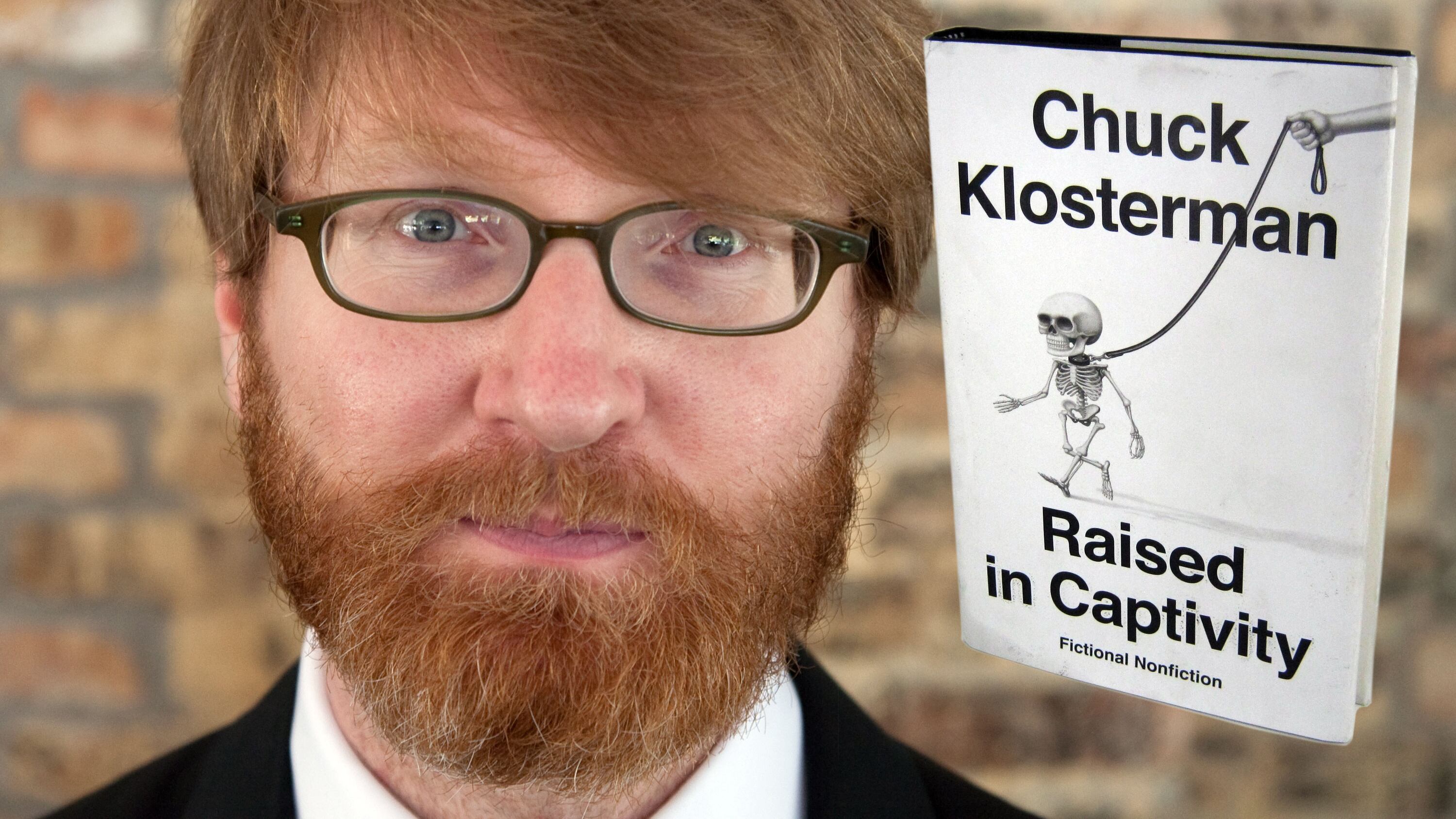Chuck Klosterman loves to hear himself think.
That's probably true of many writers, and certainly most essayists. But with Klosterman, it's not just the motivating factor of his work but its defining feature. Even in his journalism and fiction, where an author's thought process is supposed to whir in the background, his nasally internal monologue overtakes the page—he is forever the talking head in the VH1 docuseries of his own stream of consciousness.
It's a quality that has made him at once one of pop culture's most distinctive, and frequently entertaining, pundits and sometimes its most exhausting. The Onion captured him best with an article titled "Chuck Klosterman Corners Guy at Party Wearing Dio Shirt": He's never talking to you but at you, and the value of the experience depends on whatever he's talking about at any given moment.
In his new book, Raised in Captivity (Penguin Press, 307 pages, $26), that encapsulates, well, a lot. Ostensibly, it's a collection of short fiction—or "fictional nonfiction," as it says on the cover—but to call these "stories" is pushing it. Really, it's more like a succession of brief scenarios, allowing Klosterman—a semi-recent Portland transplant—to invent a premise, then wrestle with an idea. If there's an antecedent in Klosterman's oeuvre, it's none of his previous books but Hypertheticals, a Cards Against Humanity-style party game he created based on conversation-starting prompts. Here, though, the questions are loaded with significantly more existential dread: What if you found a puma hiding in an airplane restroom? What if your dad revealed himself as a 9/11 truther on his deathbed? What if you accidentally texted someone you barely knew, and they started unloading on you about their fucked-up sex life?
A linking theme, at times expressed more obliquely than at others, is our current techno-reality, which conjures obvious Black Mirror comparisons, but it's less like reading a literary version of the show than watching two critics argue the meaning of each episode on Twitter. Only, in this case, both critics are Chuck Klosterman. Most of the stories are presented as two-way conversations, with the action, such as it is, having already taken place. Some are told in first person, some in the form of a deposition, one as an excerpt from a memoir. Never, though, does it feel like you're anywhere other than inside Klosterman's own head.
That's not, in itself, a bad thing—but as with any anthology, Raised in Captivity is a mixed bag. The book is most successful when themed after Klosterman's main preoccupations: music and sports. In "Execute Again," a former high school football player recalls the eccentric coach who forced the team to run a single play over and over again, which begets a satisfying twist ending. "Blizzard of Summer," about a struggling band that inadvertently pens a white-supremacist anthem, feels as if it could become alarmingly prescient any day now.
Elsewhere, the concepts are too thin to hold up for more than a page or two. The good news is that, with 34 pieces spread across 300 pages, the book moves briskly enough that you never feel cornered at a party against your will. Klosterman is still sharp enough that spending a few minutes in his brain is usually worth the time—but it's always good to have an easy out.
GO: Chuck Klosterman is at Powell's City of Books, 1005 W Burnside St., powells.com, on Tuesday, Aug. 6. 7:30 pm.

